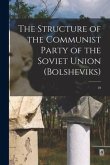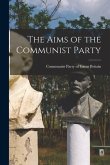Since the days of Dimitur Blagoev, a member of the first Marxist group in Russia and a founder of Bulgarian communism, the Bulgarian Communist Party (BCP) was closely identified with its Russian counterpart. In the waning days of the Soviet Bloc, the best-known fact about Bulgaria was that it modeled itself closely on the USSR and was allegedly linked to KGB terrorist activities. Those similarities were more than superficial. Nonetheless, their extent and effect were inevitably colored by Bulgaria's size, its role in the complicated politics of Eastern Europe, and, of course, the fact that the BCP did not come to power in Bulgaria until after World War II and occupation by the Red Army. Under Todor Zhivkov, the head of the BCP from 1954 until its near demise in 1989, Bulgaria continued its close collaboration with the USSR while reviving elements of Bulgarian national culture. Zhivkov proved an enduring leader whose anticorruption campaigns and attempts to professionalize the Bulgarian bureaucracy were relatively successful. But even at the time this history of the BCP was written, in 1986, before the fall of the Soviet Union, the path of Bulgaria's future was uncertain.
Hinweis: Dieser Artikel kann nur an eine deutsche Lieferadresse ausgeliefert werden.
Hinweis: Dieser Artikel kann nur an eine deutsche Lieferadresse ausgeliefert werden.








